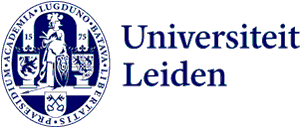
Ionica Smeets to give Iris Medal prize money to students
Ionica Smeets is planning to give the prize money that she won with the Iris Medal, a prize for excellent science communication, to student projects. ‘Students will be able to do fantastic things with just a few hundred euros.’
Eigenlijk was het drie keer feest voor Smeets rondom de Irispenning. Eerst kreeg ze totaal onverwacht een telefoontje waarin ze hoorde dat ze de Irispenning had gewonnen, daarna werd haar winst bekend gemaakt in de Avondshow met Arjen Lubach en ten slotte kreeg ze de prijs daadwerkelijk uitgereikt op het galadiner tijdens de Avond van Wetenschap & Maatschappij. ‘Ik vond het heel ontroerend om daar het juryrapport te horen. Ze vertelden dat ik de prijs onder andere heb gekregen omdat ik altijd zoek naar samenwerking. Het is leuk om de prijs te krijgen, maar het is extra leuk om hem te krijgen vanwege iets wat ik zelf belangrijk vind.’
Smeets actually celebrated winning the Iris Medal three times. First, there was the completely unexpected phone call, telling her that she’d won; then the public announcement during her guest appearance on the Avondshow met Arjen Lubach talk-show; and finally, the actual presentation of the prize at the Evening of Science & Society gala dinner. ‘It was really moving to listen to the jury’s report. They said that one reason for awarding me the prize was that I’m always looking for ways to collaborate. It’s great to be awarded the prize, but it’s especially great to be awarded it for something that I personally find very important.’
The Iris Medal
The Iris Medal for Excellent Science Communication was established in 2019 by the three government-supported science museums: NEMO Science Museum, Rijksmuseum Boerhaave and Teylers Museum. The Iris Medal is for institutions, projects or individuals in the Netherlands who, for at least five years, have succeeded in reaching and informing a wide audience about topics in the area of science and technology in an innovative and original way.
Start-up funding for students
Together with the Iris Medal, Smeets also receives a cash prize of 10,000 euros. She is planning to use this money for the students’ projects that she supervises in the Science Communication and Society master’s programme. ‘Students will be able to do some fantastic things with just a few hundred euros.’
In the last three weeks of the master’s programme, students have to create a product, prototype or pilot in the area of science communication. The assignments for these projects come from faculties, companies or organisations. ‘Our students work on these assignments and many of the projects are ultimately developed further. I can use the prize money to give the students some start-up funding for their projects.’ The assignments are often very practical things, like new booklets for the Leiden Math Trail.
Science communication is not a hobby
The Science Communication and Society master’s students have deliberately chosen to study this subject, but Smeets thinks that more academics should engage in such communication. ‘It’s one of the university’s tasks, just like research and education. I understand that these last two are more major tasks and I’m not saying that everyone has to be involved in science communication. But it’s important that every research group has someone who does it.’
And when it’s done, it must be done well, says Smeets. ‘At the moment, it’s seen too often as a hobby, while it should really be a part of the work. In my research group, and in a few others, science communication is a topic in the annual interviews. You then make an agreement, for example, that you will spend ten per cent of your time on science communication and how you will do this.’
Finding each other
Smeets has recently been receiving emails from researchers asking if she can help them with science communication because there’s no one in their institute who can. ‘And I reply saying that I actually know someone in that institute who can do it. People don’t know how to find each other.’ She hopes, as one of the coordinators, that the new National Centre of Expertise on Science & Society will be able to assist with this in the future.
New workshop: Impact with Science Communication
What impact do you want your research to make, outside the academic world? What message do you want to convey about your project or results, and how can you make sure that people actually listen? For researchers who want to elevate their science communication, Learning & Development will be offering a new training workshop next year: Impact with Science Communication. This is an interactive half-day workshop, where you can work on defining your goal, target audience and message, and how to translate these into the right form of science communication. This will help you think about and develop the links between your research and society.
The workshop will be offered twice as a pilot: in April and June 2024. If you’re interested, please contact Marieke Epping. More information about science communication and training courses.
Text: Dagmar Aarts
Photo: The Evening of Science & Society
